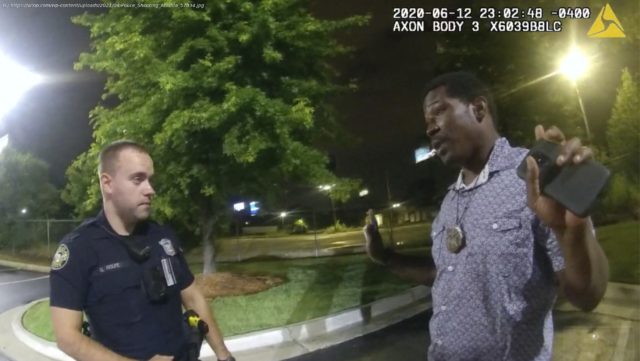The firing of the former Atlanta police officer who’s charged with murder in the shooting death of Rayshard Brooks has been reversed.
ATLANTA (AP) — The firing of the former Atlanta police officer who’s charged with murder in the shooting death of Rayshard Brooks was reversed after a review panel found the city failed to follow its own procedures for disciplinary actions. Garrett Rolfe was fired last June, a day after he shot the Black man in the parking lot of a fast food restaurant. The Atlanta Civil Service Board on Wednesday released its decision on Rolfe’s appeal of his firing. “Due to the City’s failure to comply with several provisions of the Code and the information received during witnesses’ testimony, the Board concludes the Appellant was not afforded his right to due process,” the board said in its decision. “Therefore, the Board grants the Appeal of Garrett Rolfe and revokes his dismissal as an employee of the APD.” Rolfe will remain on administrative leave until the criminal charges against him are resolved, Atlanta Mayor Keisha Lance Bottoms said. Atlanta police spokeswoman Chata Spikes said she could not comment on whether he would receive back pay or would be paid while on administrative leave. Brooks’ killing last June 12 happened amid weeks of sometimes violent protests across the U.S. after a Black man, George Floyd, was killed by a white Minneapolis officer on May 25. The night after Brooks died, the Wendy’s restaurant where he was shot was set on fire. Protesters have denounced racial inequality and called for the dismantling of police departments or the reallocation of their funding to social services. Atlanta police Sgt. William Dean had testified that the firing seemed rushed, and Rolfe was not given sufficient time to respond, according to the decision. Dean also said that during his tenure in the police department’s internal affairs unit, he was not aware of any such termination of an officer for an alleged firearms violation without the department first conducting an investigation, the decision states.






